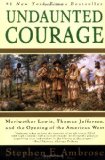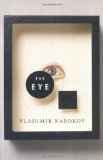In Which I Recite Poetry from Memory
March 6, 2011
I’ve always been envious of people who can memorize poetry. Or prose passages, quotes, strings of digits. I’m tolerable good at minute fact-based recall—hence the appeal of little historical anecdotes, dates, foreign languages, minerals, functions in programming languages—but I’m hopeless with literature or poems. Or so I thought.
A few weeks ago, the cover story of The New York Times Magazine (“Secrets of a Mind Gamer“, February 15, 2011) changed my reality for the better. In the piece (which I encourage you to read), writer Joshua Foer apprentices himself to a master memory coach. Foer, a regular guy who can’t memorize poetry either, becomes, within a year, a nationally-relevant player in the realm of memory sport.
While the article doesn’t go into great depth about the specifics of Foer’s grueling training sessions, it does shed light on the core technique, so-called “Memory Palaces,” ostensibly invented by Greek poet Simonides of Ceos* in the 5th century BC. Of late, because of a massive project I’m choosing to keep quiet about, I’ve become intrigued by certain cognitive concepts, like “memory hooks” or methods like the Memory Palace concept.
Simonides likely didn’t care about the brain science of his mnemonic invention, he probably just noticed that it worked. The sole survivor of a catastrophic roof collapse during a banquet, he realized that he could clearly recall every attendee of the dinner based on where they were seated. What he’d stumbled onto was the brain’s predilection to recall things that have a visual and a spacial element attached to them. Humans not being designed to remember numbers or strings of words, but instead routes and images—those things that keep them alive in primal mountain-lion- and poison-berry-infested environments.
It goes like this. Use a place you know very well, like your house or workplace or route to school (my routes are foot-based; I’m not sure how well this would translate to vehicle-based routes). Take the thing you want to memorize and start unwinding it along a set path through this memory palace. For example, the first line of Shakespeare’s 44th sonnet unravels for me in the lobby of my work building. “If the dull substance of my flesh were thought” translates roughly into:
- a frenetic bunch of “ifs” bounding into the front door.
- The wall to my left holds a mural (in real life). In this case, it has suddenly gone “dull”, matte, and there is a “substance” running down it (rather jelly-like)
- Around the corner, the display case is stuffed to the gills with raw meat (“my flesh”)
- In the large conference room immediately to the left, a whole bunch of strange windmills are whirring (“were”) and Rodin’s “The Thinker” sculpture is in the corner (“thought”)
And so forth for the next 13 lines.
Not only did the sonnet—which I have pushed a bunch of failed efforts in prior years to memorize—stick (it’s been over a week now), but I can leap into any section of it by going to that part of my path through the building. It works, it works well, and it’s quick. Challenges aren’t non-existent: I still am working on coming up with good images for the tiny words. In in my world is a fish, as fish have fins and fin rhymes with in. Of is a dove, which is a witch, or an oar. Deciding how much space to give each visualization, and how much language data to try to fit into one scene-let is also under adjustment.
Encouraged by my sonnet success, I asked the Internet (Twitter and Facebook) what I should memorize next. There was some interest in pi, but I’m not doing numbers right now. My friend Brett suggested Chaucer, in the Middle English. That’s challenging. And today, while cleaning my bathroom, I memorized the elusive (in that I’d tried before and failed) speech by John of Gaunt in Richard II.
My trick for you today is to recount these three items from memory. I take no responsibility for the spelling in the Chaucer bit—I’m going to have to relax my orthographical OCD here—and punctuation is likely going to be creative in the other bits. But, see, I’m working in the oral tradition here. Let’s see how I do.
Shakespeare’s Sonnet 44
If the dull substance of my flesh were thought,
Injurious distance should not stop my way
For then, despite of space, I would be brought
From limits far remote, where thou dost stay;
No matter then although my foot did stand
Upon the farthest earth removed from thee,
For nimble thought can jump both sea and land
As soon as think the place where he would be.
But—ah! Thought kills me that I am not thought
To leap large lengths of miles when thou art gone,
But, so much of earth and water wrought,
I must attend time’s leisure with my moan,
Receiving naught by elements so slow,
But heavy tears, badges of either’s woe.
Prologue, Canterbury Tales, Geoffrey Chaucer, Lines 1-16
Whan that Aprille with his shoures soote
The drought of March hath perced to the roote
And bathed evry vein with swich liquor
Of which virtu engendered is the flour
Whan Zephirus eeke with his sweete brethe
inspired hath in evry holt and heathe
The tender croppes, and the yonge sonne
Hath in the ram his halfe course yronne
And smalle fowles mayken melodye
That slepen all the night with open eye
So priketh hem nature in her corages
Thanne folk longen to goon on pilgrimages
And palmeres for to seeke stronge strondes
To fewrne hawles, kowth in sundry lands
And specially from every shire’s end
Of Engolond, to Canterbury they wende
John of Gaunt, from Act II, Scene I, Richard II
This royal throne of kings, this sceptered isle
This earth of majesty, this seat of Mars,
This other Eden, demi-paradise
This fortress built by nature for herself
Against infection and the hand of war
This happy breed of men, this little world
This precious stone set in the silver sea
Which serves it in the office of a wall
Or as a moat defensive to a house
Against the envy of less happier lands
This blessed plot, this earth, this realm, this England
It Works
The crux of “Secrets of a Mind Gamer” is that success lies entirely in technique. There is no innate talent to memory (at least so far as science and brain scans can tell); it’s all a focused application of structured thinking. If anything, creativity—the ability to come up with absurd and, therefore, memorable visualizations of things—might be the strongest talent one can apply toward remembering things.
I’ve had a couple of people near to me say “I’m proud of you for memorizing that,” but I feel like I’m playing a ruse here. I’m not doing anything that anyone else in the world couldn’t do. I challenge you to try this—it’s really satisfying.
* Ceos being an alternate transliteration of Kea, namesake island of my goddaughter.
One Comment
Recently Reviewed
Get the Books
Read my Reviews
Related Posts
- Book Review: "The Making of a Poem" (Norton Anthology)
May 19, 2008 - Reader Question: How do you know you’ve found your next book?
February 11, 2010 - Reader Question: Best book you ever found by accident
January 7, 2010 - I am going to Iceland: Preparation!
February 10, 2010 - Fixing my Mt. St. Helens Problem
June 27, 2009




I wondered if this was the memory technique you were referring to before. I learned this one a long, long time ago, but never had much luck with it. Maybe I’ll bring it back into my mental stunt rotation. I have been meaning to memorize “The Raven” or some such.